On the innovative research hub at the 5th session of the Business Convention
From quantum cryptography and Arctic research expedition to cancer vaccine development – on 19 September, entrepreneurs from the Tri-City area had the opportunity to listen about groundbreaking research conducted at the University of Gdańsk. The 5th meeting of the Business Convention of the Fahrenheit Universities was held at the Faculty of Biology, University of Gdańsk.
Our university builds its reputation not only by educating professionals for society but also through close collaboration with the business sector. The synergy of these efforts paves new paths in scientific research and various educational formats, while also helping shape today’s knowledge-based economy,” said Prof. Piotr Stepnowski, Rector of the University of Gdańsk and Chair of the Assembly of the Fahrenheit Universities. – That’ is why initiatives like this are so crucial – they are genuinely tripartite, involving not only academia and business, but also the local government. Only through such collaboration can we effectively define the key challenges facing modern education, a forward-looking economy, and a well-functioning state.
He also emphasized the importance of synergy in the context of initiatives undertaken by the Fahrenheit Universities. FarU activities is not only about intercollegiate initiatives or sharing the resources, but also about stronger cooperation with the environment, as demonstrated by both the Convention as an example of collaboration with business circles, the scholarship programme pursued with the Mayor of the City of Gdańsk, as well as many competitions such as the Public Space Planning Academy, administered with the Pomeranian Regional Planning Office.
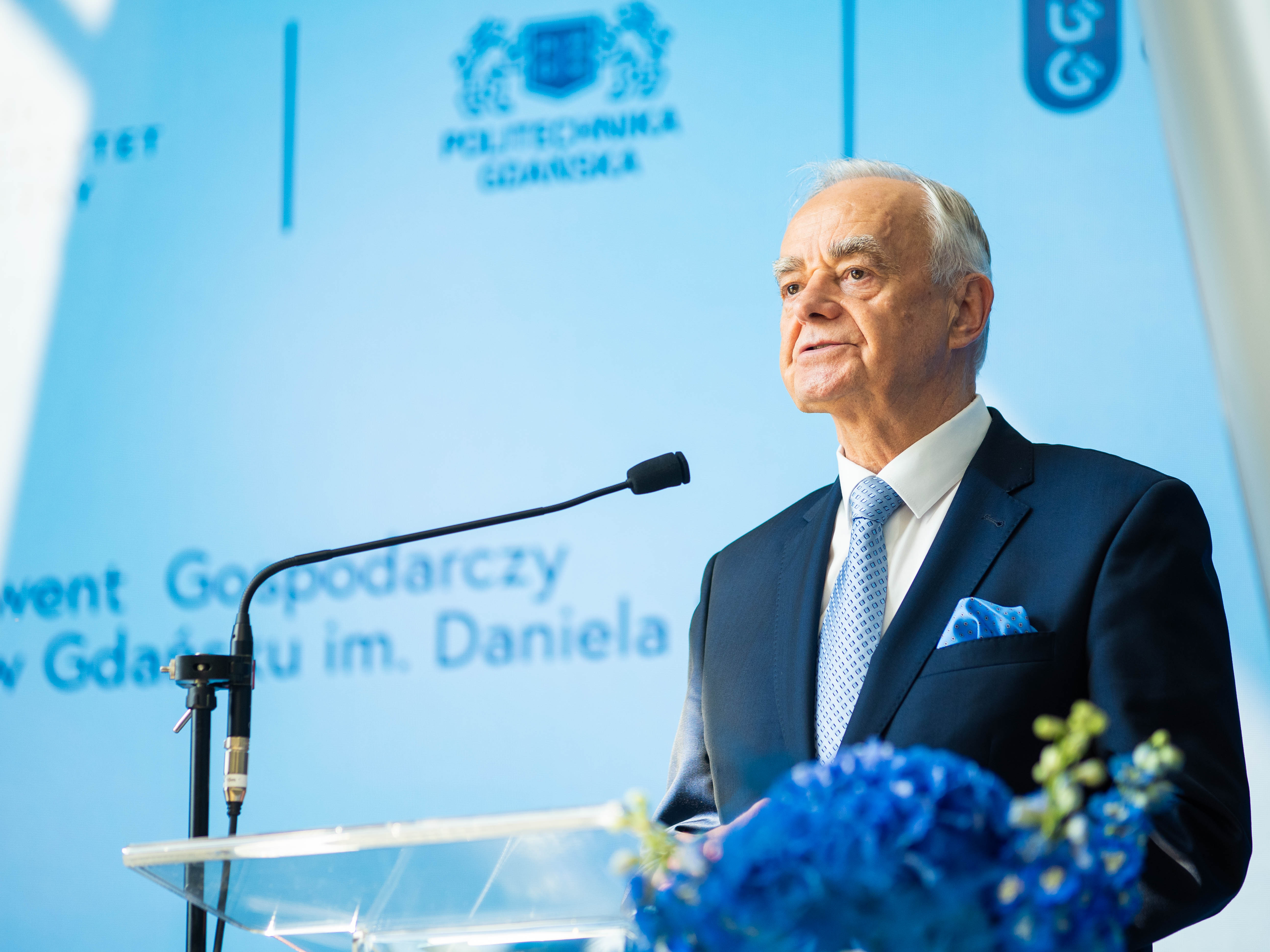
Before the plenary session, Zbigniew Canowiecki, Ph.D., Chair of the Business Convention at the Fahrenheit Universities (FarU), addressed the audience and outlined the key challenges currently facing entrepreneurs. He pointed out the lack of dedicated space and capacity for research within companies. – This is why bringing the business and academic communities closer together and launching joint initiatives is essential.
Then the members of the FarU Business Convention voted to adopt a resolution from the previous session, which focused on the energy sector in the Pomeranian Region. – The Pomeranian Region offers exceptional conditions for the development of solar energy, as the coastal belt of Poland enjoys the most favourable levels of sunlight exposure,” the document states. The resolution was officially signed on behalf of the Convention by Zbigniew Canowiecki, Ph.D., and Prof. Piotr Stepnowski.
The scientific presentation series began with a talk by Prof. Wiesław Laskowski, Vice-Rector for Research at the University of Gdańsk, who introduced one of the most promising technologies in the field of quantum physics: quantum cryptography. As an example, he showcased a device capable of generating truly random numbers and explained how it can detect cyber attacks in real time. The product was developed by the start-up called Sequre Quantum, founded by researchers from the University of Gdańsk and the University of Concepción in Chile.
Dorota Pyć, Ph.D., President of the Port of Gdańsk and Associate Professor at the University of Gdańsk, presented approaches to achieving a sustainable maritime economy – one that recognizes the vital role of the global ocean in sustaining human life.
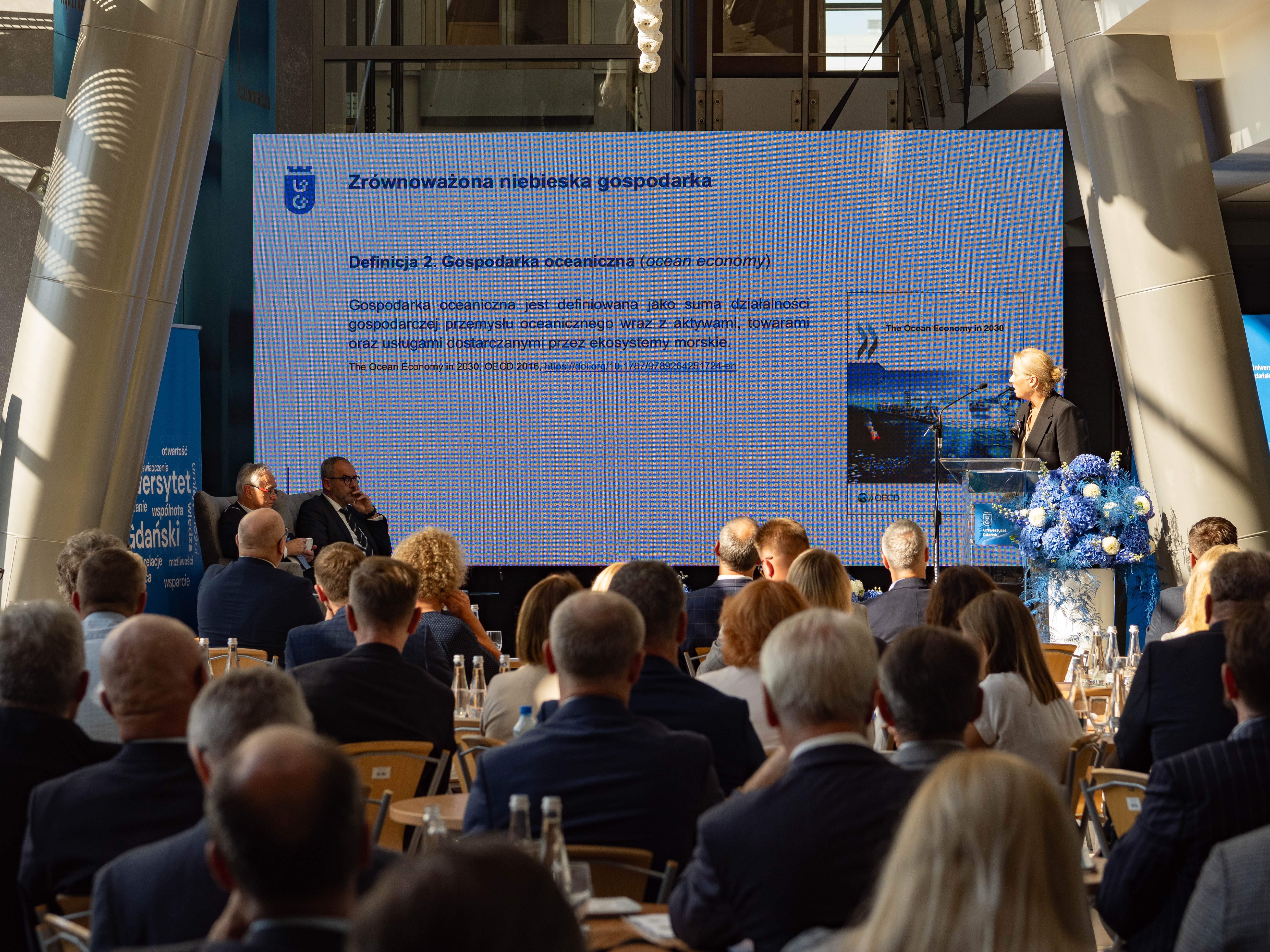
At the University of Gdańsk, we carried out an international project funded by the Interreg South Baltic Programme, aimed at strengthening knowledge on maritime spatial planning. As part of the Seaplanspace project, w trained a large number of participants from five South Baltic countries in this field.
Prof. Tomasz Puzyn talked about a spin-off company established on the basis of the results of research conducted by his team. The company aims to reduce the costs associated with testing new chemical compounds and materials through the use of artificial intelligence and machine learning. These advanced technologies can assist in identifying key properties such as expected functionality, human toxicity, and environmental impact.
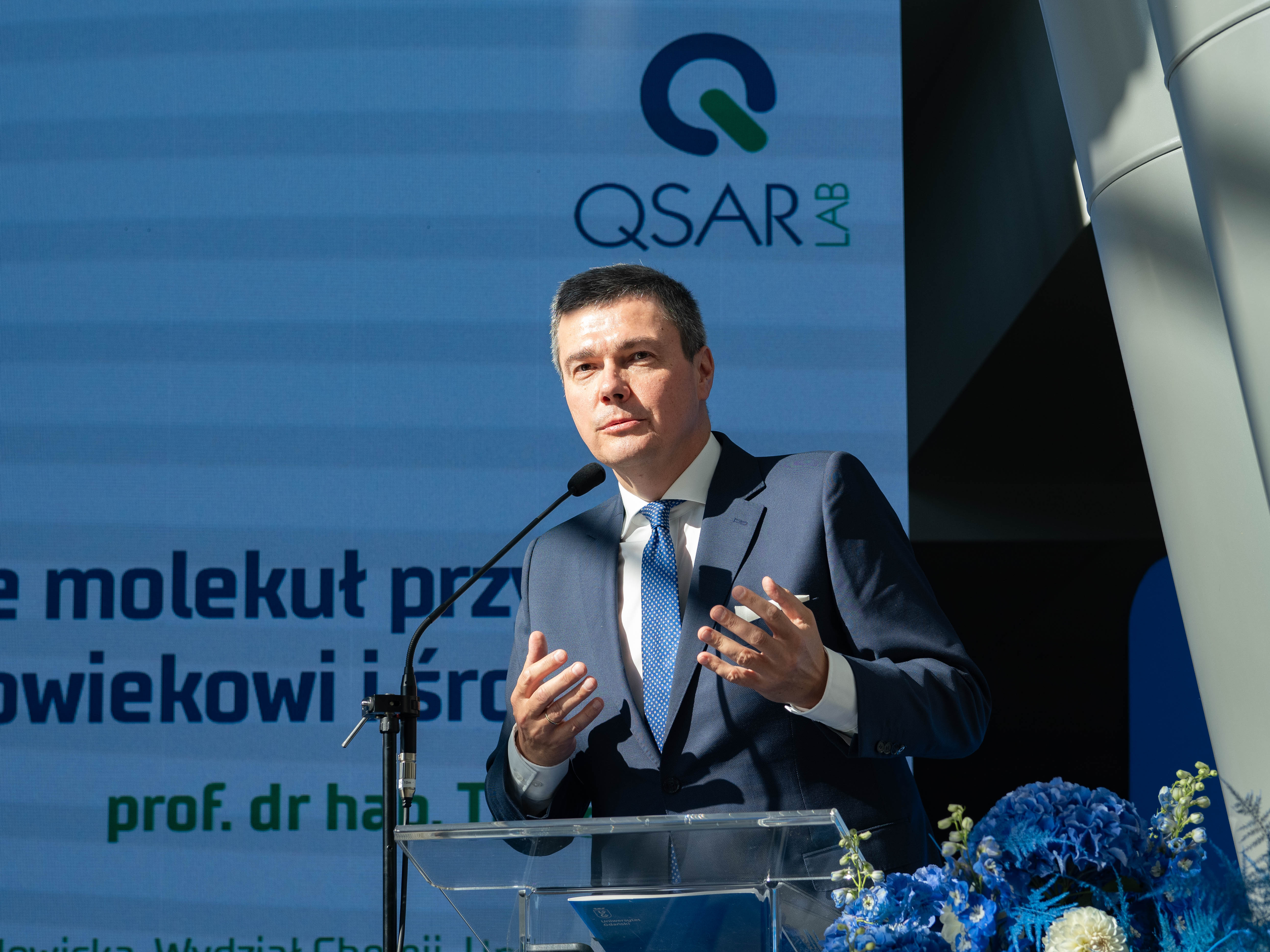
Where does the Baltic Sea truly end? This question is being explored by scientists from the SEA-EU alliance of coastal universities and the Institute of Oceanology of the Polish Academy of Sciences. In June this year, an international team of researchers embarked on a scientific expedition beyond the northern Arctic Circle, collecting hundreds of samples to assess the Baltic Sea’s influence on Arctic waters. Agata Weydmann-Zwolicka, Associate Professor at the University of Gdańsk and scientific leader of the expedition aboard the UG’s r/v Oceanograf research vessel, shared insights into the course of the voyage and outlined the team’s future research plans.
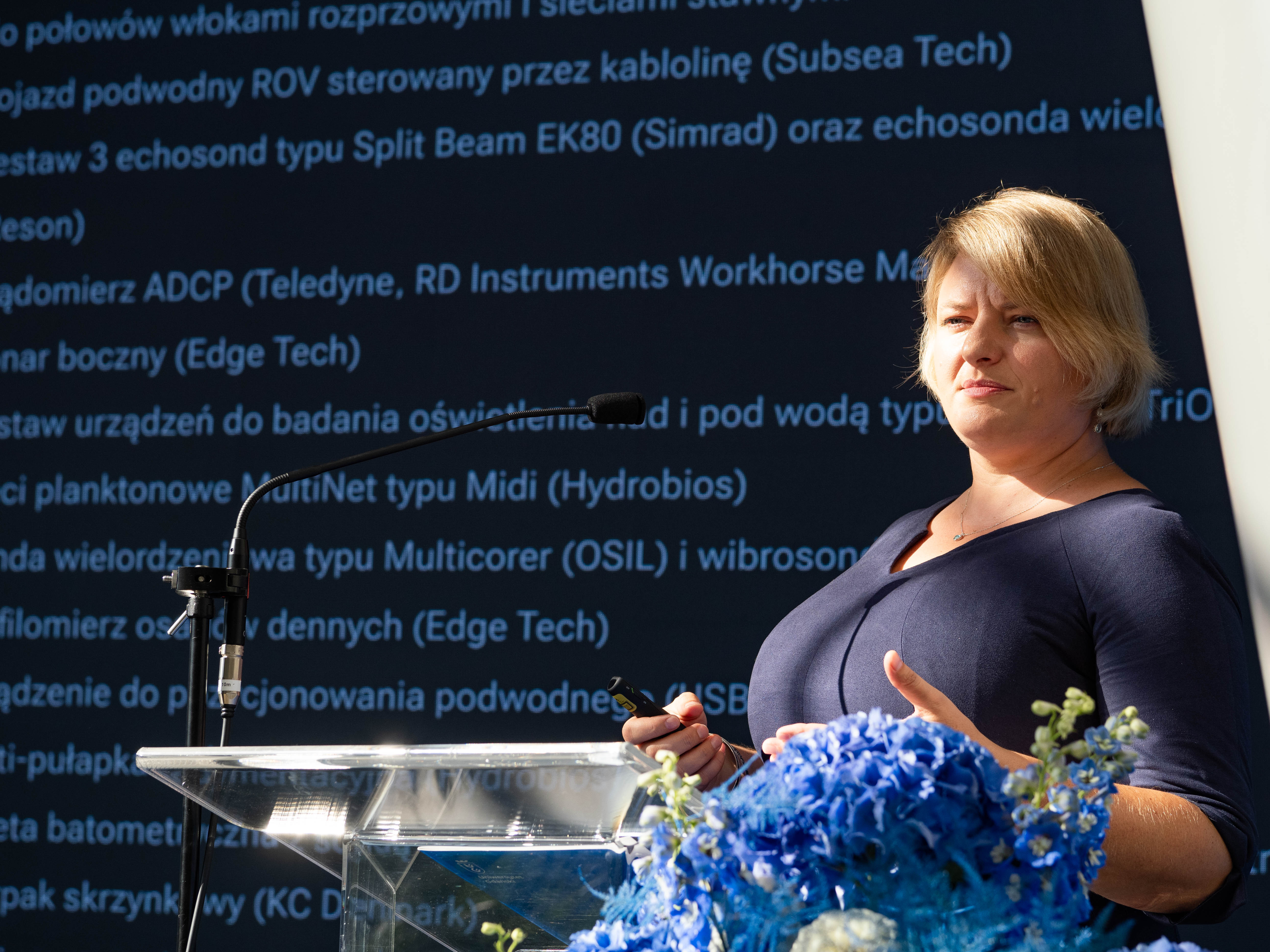
Professor Natalia Marek-Trzonkowska, Director of the International Centre for Cancer Vaccine Science (ICCVS), presented the centre’s progress in developing personalized cell therapies for lung cancer. Over the past four years, the ICCVS has filed nine patent applications and published multiple scientific papers, including those in collaboration with researchers from the University of Oxford.
Anna Bączkowska, Associate Professor at the University of Gdańsk, spoke about how to detect hate speech that does not necessarily rely on profanity. As an English scholar from the Faculty of Philology, she presented the results of an international research project aimed at improving moderation of hate speech and offensive language in social media and user reviews on platforms such as Allegro and Amazon.
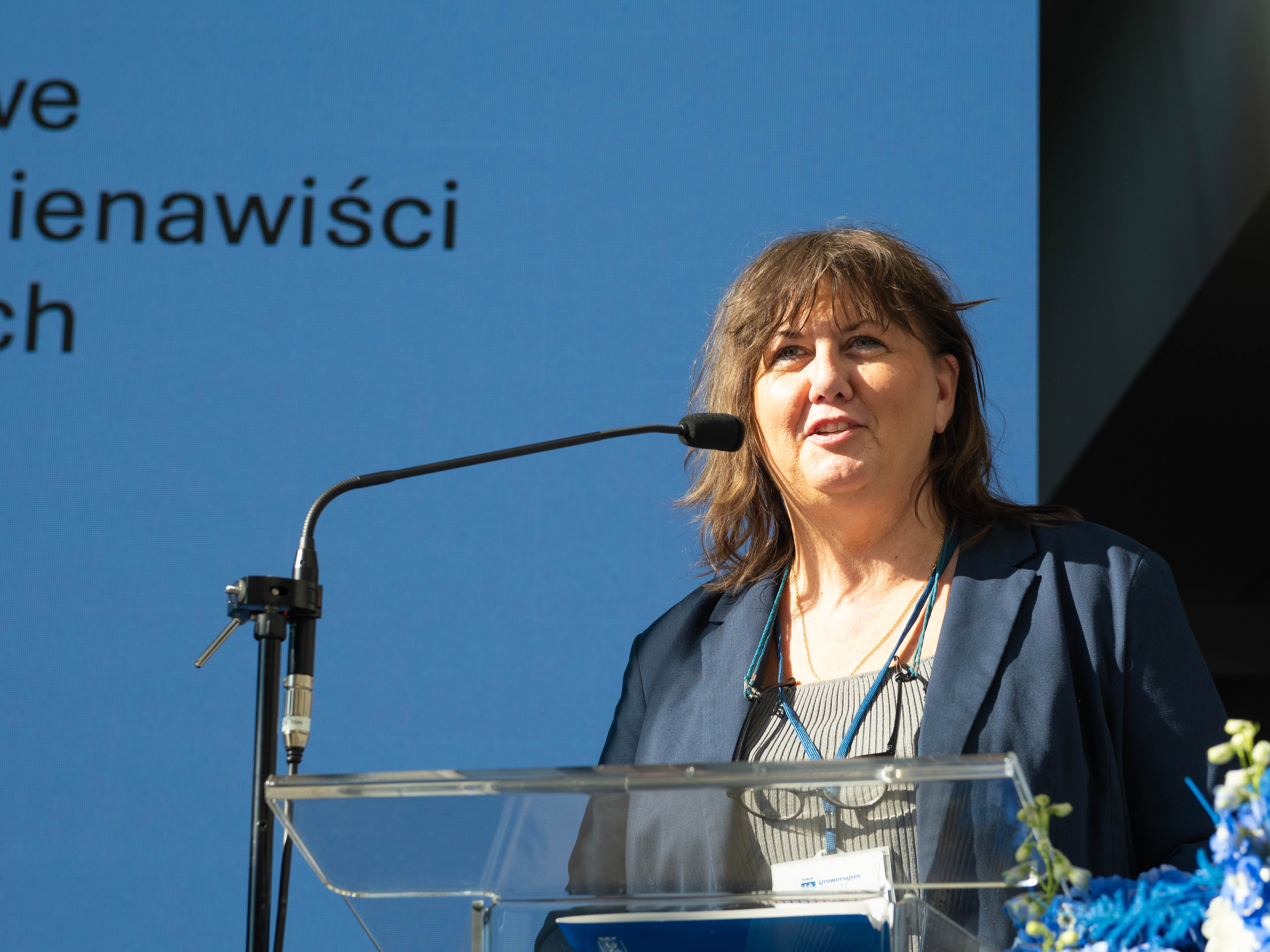
To close the event, members of the FarU Business Convention were invited to explore highlights of the Faculty of Biology – from the biotope Paludarium inspired by the TEPUI region to the “Tree of Life” mural.
photo: Gregmar
Based on the press release of University of Gdańsk







